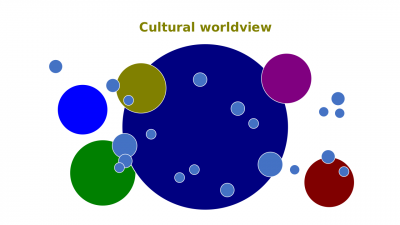Difference between revisions of "Parochialism"
| Line 1: | Line 1: | ||
| − | [[File:Cultural-relativism.png|400px|thumb|right|[[Cultural intelligence]]]][[Parochialism]] refers to viewing the world solely through your own perspectives, leading to an inability to recognize differences between people. | + | [[File:Cultural-relativism.png|400px|thumb|right|[[Cultural intelligence]]]][[Parochialism]] refers to viewing the world solely through your own perspectives, leading to an inability to recognize differences between people. [[Parochial belief]]s refer to views of those who exercise ''parochialism''. |
==Definition== | ==Definition== | ||
According to [[Management by Robbins and Coulter (14th edition)]], | According to [[Management by Robbins and Coulter (14th edition)]], | ||
| − | |||
:[[Parochialism]]. Viewing the world solely through your own perspectives, leading to an inability to recognize differences between people. | :[[Parochialism]]. Viewing the world solely through your own perspectives, leading to an inability to recognize differences between people. | ||
[[Category: Management]][[Category: Articles]] | [[Category: Management]][[Category: Articles]] | ||
Revision as of 22:00, 20 June 2020
Parochialism refers to viewing the world solely through your own perspectives, leading to an inability to recognize differences between people. Parochial beliefs refer to views of those who exercise parochialism.
Definition
According to Management by Robbins and Coulter (14th edition),
- Parochialism. Viewing the world solely through your own perspectives, leading to an inability to recognize differences between people.
